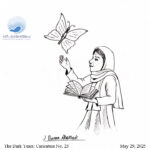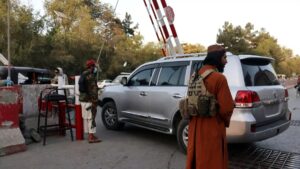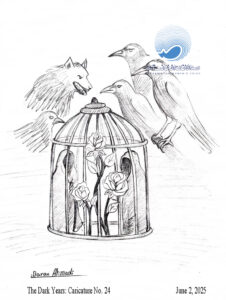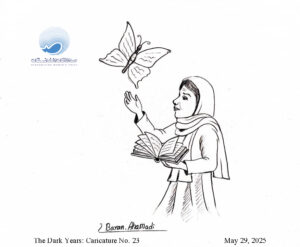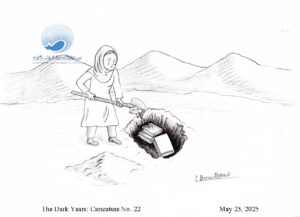Tales of the Dark Age (No. 33)
By Mumtaz Hosseini, Translated by Shekib Jaghori
In the remote villages of Afghanistan, life is harsh, and survival often depends on sheer luck. The lack of healthcare and medical facilities, the long distances to hospitals, and widespread poverty have made life unbearably difficult—especially for women. Maternal and infant mortality rates in these areas remain alarmingly high.
About two months ago, in late December 2024, I witnessed the death of a woman during childbirth. Her name was Maryam. She was expecting her sixth child. Of her six children, three had already died; only two were still alive. Her husband was an addict—unemployed, violent, and indifferent. Maryam had never visited a clinic during her entire pregnancy.
Maryam was due to give birth on December 24, 2024. Around midnight, the midwife at the hospital called me and said: “A patient is on her way to give birth. Go to the hospital as soon as possible. I’m far away, and you need to be there before I arrive—there’s no one else available.”
I rushed to the hospital, and by the time I arrived, Maryam had already been admitted. I took her to the delivery room and checked the patient records, but her name wasn’t listed.
“Maryam, have you been to the clinic before?” I asked. “No,” she replied. “Why not? You should have come at least three times a month during your pregnancy!” I said.
Her face darkened. In a weak voice, she murmured, “I know, but my husband is an addict. For the past two months, as my due date approached, I’ve been suffering from severe abdominal and back pain. My whole body is swollen. I told him many times that I was bleeding and needed to see a doctor, but he kept saying, ‘It’s not time for delivery yet.’”
She continued, “Not only did he refuse to take me to a doctor, but he’s incredibly cruel. He beats me all the time. He doesn’t work and spends most of the day sleeping at home. I take care of the household and work outside to feed my children. Tonight, my mother insisted I come to the clinic.”
As we spoke, the midwife walked in. She examined Maryam and immediately noticed that her blood pressure was dangerously low. Her pale eyes and frail hands were clear signs of severe anemia. Her whole body was swollen. The midwife sighed and said, “If only you had come earlier, we could have treated your anemia.”
Maryam’s pain worsened. By 5 a.m., the midwife said it was time to move her to the delivery room. But then, an even greater problem arose. After examining her, the midwife’s face grew tense.
“The baby has no heartbeat,” she said gravely.
We connected an IV to stabilize Maryam and slightly increased the flow rate. But the contractions became stronger and stronger. Suddenly, the midwife noticed that the amniotic fluid was stained with meconium—a sign of fatal distress. She panicked.
“This is a serious complication! The clinic doesn’t have the necessary equipment—we need to transfer her to the hospital immediately!”
She made an urgent call to Eskan Hospital, the state medical center in Miramor district. The hospital receptionist responded: “If the roads aren’t blocked due to the rain, we’ll send an ambulance.”
The hospital was two to three hours away, and they insisted that the midwife accompany Maryam.
We explained Maryam’s critical condition to her husband, but he reacted angrily: “What do you mean? You’re the doctor—just save her! There’s no need for all these facilities.”
Frustrated, the midwife responded, “Maryam needs an emergency C-section. The baby is already gone, but we have to save the mother.”
Without a hint of concern, her husband replied coldly, “If the baby is dead, then…” He didn’t finish his sentence, but the look on his face said it all—Maryam’s life meant nothing to him.
Despite all our efforts, Maryam died on the way to the hospital. Like countless women in this country, she was a victim of poverty, violence, and injustice. Had she received timely medical care, had healthcare been more accessible, had she been supported, she might still be alive today.
Maryam’s story is not unique—it is the story of thousands of Afghan women who silently lose their lives to neglect and deprivation.
For women in Afghanistan, life is a relentless struggle—a place where survival is never guaranteed but left to chance.


